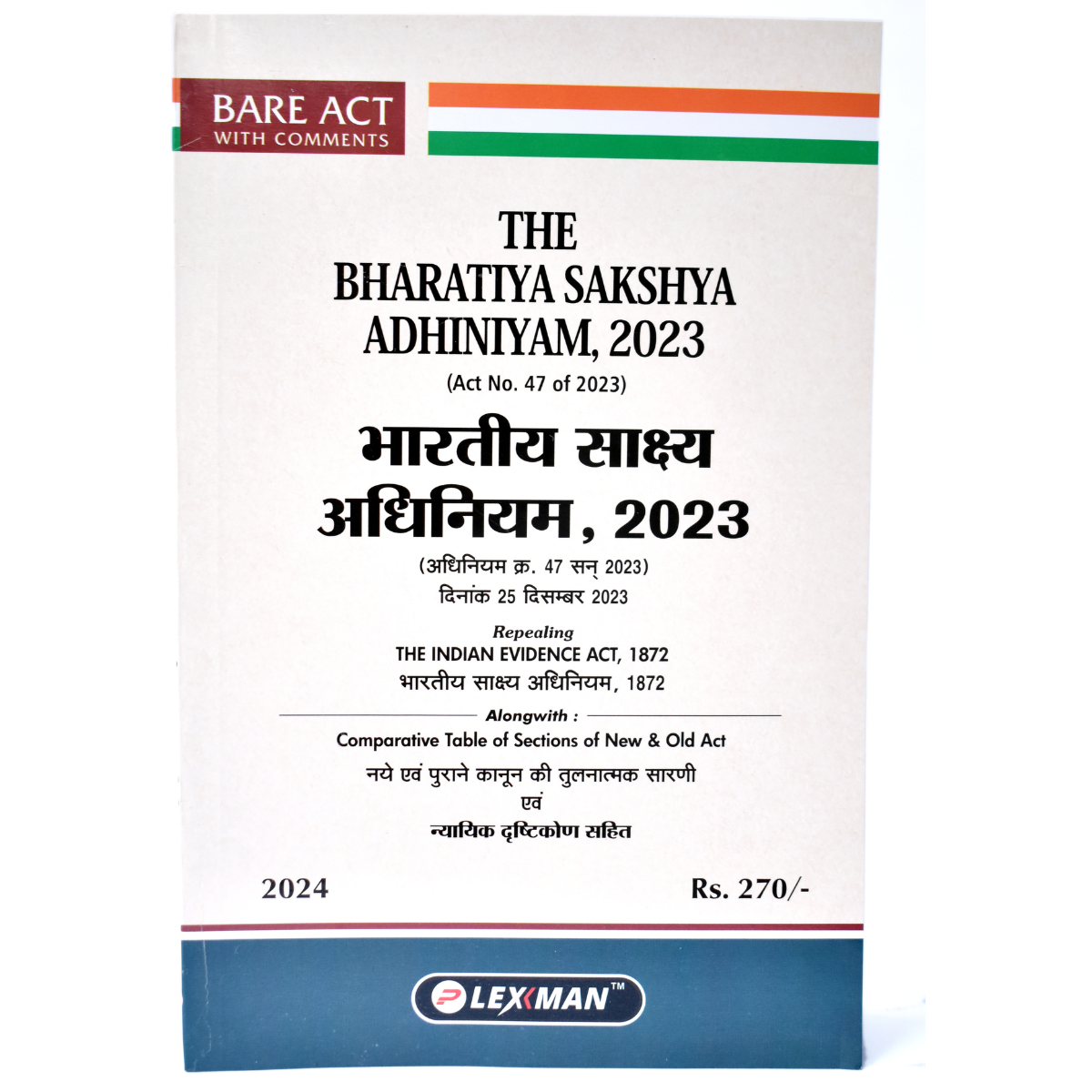



Bharatiya Sakshya Adhiniyam" explores India's evidence laws, covering principles, procedures, and challenges in the presentation and evaluation of evidence within the judicial system.
Principles of Evidence: Explores foundational principles guiding the admissibility, relevance, and weight of evidence in Indian courts, ensuring fair trials and justice.
Types of Evidence: Details various forms of evidence recognized under Indian law, including oral testimony, documentary evidence, physical evidence, and electronic evidence.
Admissibility Rules: Discusses procedural rules determining the admissibility of evidence, ensuring only relevant and reliable evidence is presented during trials.
Burden of Proof: Examines the burden of proof requirements placed on parties to establish facts through evidence, crucial for determining guilt or innocence in criminal cases and liability in civil disputes.
Challenges and Case Law: Addresses challenges such as delays in evidence presentation, issues of authenticity, and significant case law that has shaped the interpretation and application of evidence laws in India.
Foundational Principles: The foundational principles of "Bharatiya Sakshya Adhiniyam" delve into the fundamental rules that govern the presentation and evaluation of evidence in Indian courts. These principles ensure that evidence is presented in a fair and transparent manner, adhering to the principles of natural justice and due process. They dictate how evidence should be collected, preserved, and presented to ensure its reliability and relevance in judicial proceedings.
Types of Evidence: The legislation covers various types of evidence recognized under Indian law. This includes oral testimony given by witnesses, documentary evidence such as contracts, letters, and records, circumstantial evidence that indirectly proves a fact, and electronic evidence obtained from digital sources like emails, social media, and surveillance footage. Each type of evidence has its own rules regarding admissibility and weight in court.
Procedural Framework: "Bharatiya Sakshya Adhiniyam" provides a comprehensive procedural framework that governs the admissibility, examination, and presentation of evidence during trials in Indian courts. This includes rules on how evidence should be collected, preserved, and submitted to ensure its integrity and authenticity. The framework also outlines procedures for cross-examination, objections to evidence, and judicial discretion in determining the relevance and admissibility of evidence.
Legal Standards: The legislation sets out legal standards that guide the evaluation of evidence in Indian courts. This includes the burden of proof, which determines the party responsible for proving a fact, whether in criminal cases where the prosecution must prove guilt beyond a reasonable doubt, or in civil cases where the plaintiff must prove their case on a balance of probabilities. Admissibility criteria ensure that only relevant and reliable evidence is considered, while rules governing expert testimony help judges understand complex technical or scientific evidence presented during trials.
Challenges and Reforms: "Bharatiya Sakshya Adhiniyam" also addresses various challenges within the Indian judicial system related to evidence. These challenges include delays in evidence presentation, issues of authenticity and tampering, and the need for continuous reforms to streamline the evidentiary process. Ongoing reforms aim to enhance the efficiency of evidence collection and presentation, ensure fair trials, and improve access to justice for all parties involved in legal proceedings.